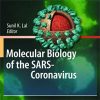Delirium Treatment with Haloperidol Not Associated with Higher Risk of QTc-interval Prolongation
frontiersin.orgDelirium treatment with haloperidol and/or pipamperone was not associated with a higher risk of QTc-interval prolongation in this naturalistic patient sample but was greater in magnitude and correlated with equipotent dosage and the number of QT interval-prolonging substances used.
Polypharmacy was associated with higher mortality and increased risk of critical QTc prolongation.
A total of 86.3% of patients were treated with haloperidol and/or pipamperone at a mean daily haloperidol-equipotent dose of 1.2 ± 1 mg.
Non-cardiovascular side effects were registered in 2.9% of all patients and correlated with higher scores on the Delirium Observation Screening Scale. They did not occur more frequently under antipsychotic treatment.
The frequency of QTc interval prolongation was comparably common among all groups, but prolongation magnitude was higher under antipsychotic treatment.
It was positively correlated with antipsychotic dosage and the total number of QTc interval-prolonging substances administered.

















